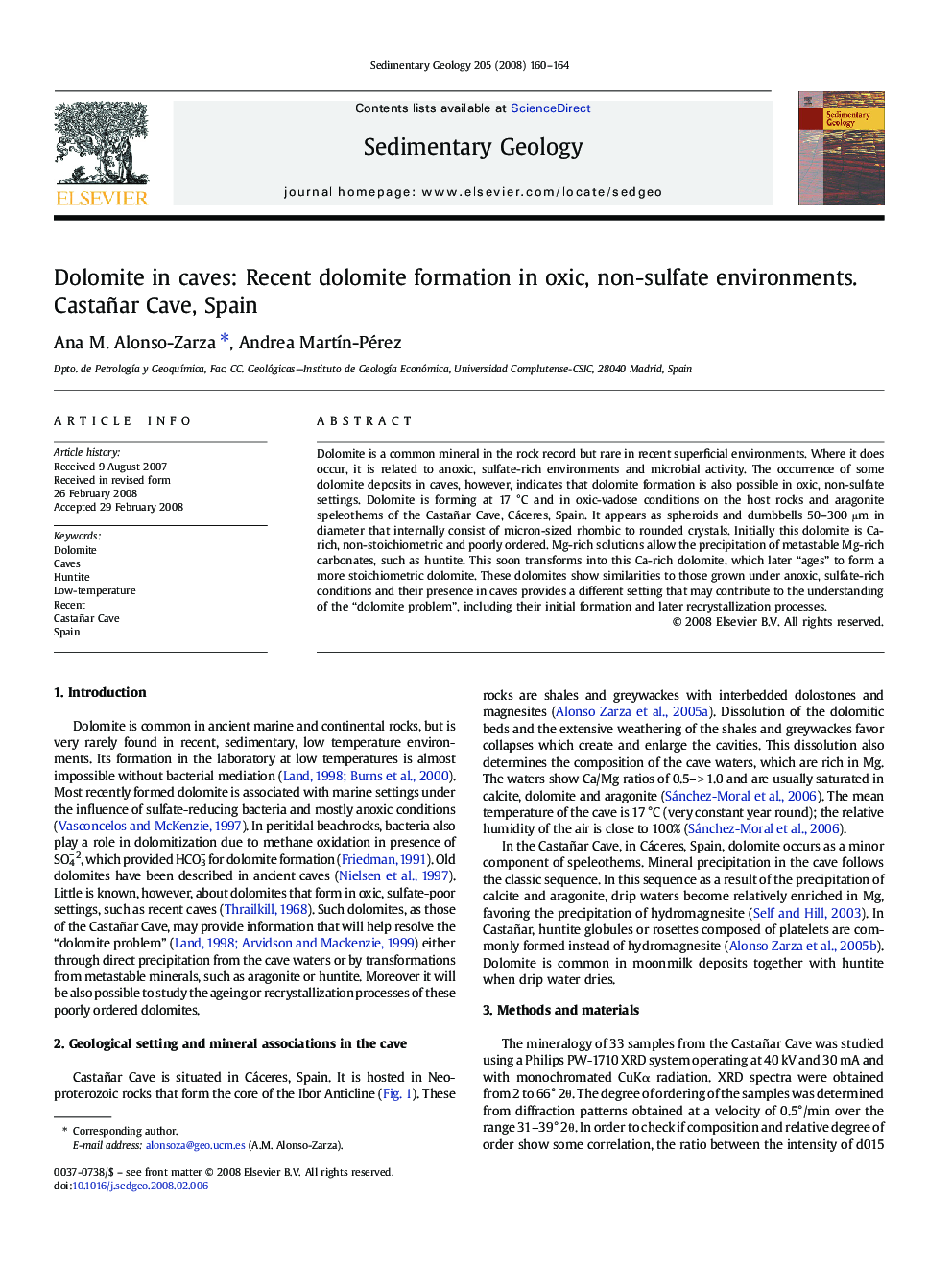| کد مقاله | کد نشریه | سال انتشار | مقاله انگلیسی | نسخه تمام متن |
|---|---|---|---|---|
| 4690613 | 1636156 | 2008 | 5 صفحه PDF | دانلود رایگان |

Dolomite is a common mineral in the rock record but rare in recent superficial environments. Where it does occur, it is related to anoxic, sulfate-rich environments and microbial activity. The occurrence of some dolomite deposits in caves, however, indicates that dolomite formation is also possible in oxic, non-sulfate settings. Dolomite is forming at 17 °C and in oxic-vadose conditions on the host rocks and aragonite speleothems of the Castañar Cave, Cáceres, Spain. It appears as spheroids and dumbbells 50–300 μm in diameter that internally consist of micron-sized rhombic to rounded crystals. Initially this dolomite is Ca-rich, non-stoichiometric and poorly ordered. Mg-rich solutions allow the precipitation of metastable Mg-rich carbonates, such as huntite. This soon transforms into this Ca-rich dolomite, which later “ages” to form a more stoichiometric dolomite. These dolomites show similarities to those grown under anoxic, sulfate-rich conditions and their presence in caves provides a different setting that may contribute to the understanding of the “dolomite problem”, including their initial formation and later recrystallization processes.
Journal: Sedimentary Geology - Volume 205, Issues 3–4, 1 April 2008, Pages 160–164